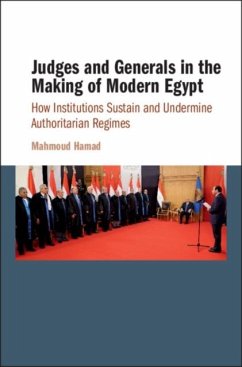Why do authoritarian regimes survive? How do dictators fail? What role do political institutions play in these two processes? Many of the answers to these questions can be traced to the same source: the interaction between institutions and preferences. Using Egypt as a case study, Professor Mahmoud Hamad describes how the synergy between judges and generals created the environment for the present government and a delicate balance for its survival. The history of modern Egypt is one of the struggle between authoritarian governments, and forces that advocate for more democratic rights. While the military has provided dictatorial leaders, the judiciary provides judges who have the power to either support or stymie authoritarian power. Judges and Generals in the Making of Modern Egypt provides a historically grounded explanation for the rise and demise of authoritarianism, and is one of the first studies of Egypt's judicial institutions within a single analytical framework.
Dieser Download kann aus rechtlichen Gründen nur mit Rechnungsadresse in A, B, BG, CY, CZ, D, DK, EW, E, FIN, F, GR, HR, H, IRL, I, LT, L, LR, M, NL, PL, P, R, S, SLO, SK ausgeliefert werden.









